Camping is an amazing way to connect with nature, unwind from daily stress, and create unforgettable memories. However, if you’re new to camping, it can feel a bit overwhelming. Don’t worry, though! With the right tips and tricks, you’ll be able to tackle your first camping trip like a seasoned pro. Here are the top 10 camping hacks for beginners that will make your outdoor adventure smoother and more enjoyable.
Choosing the Right Campsite
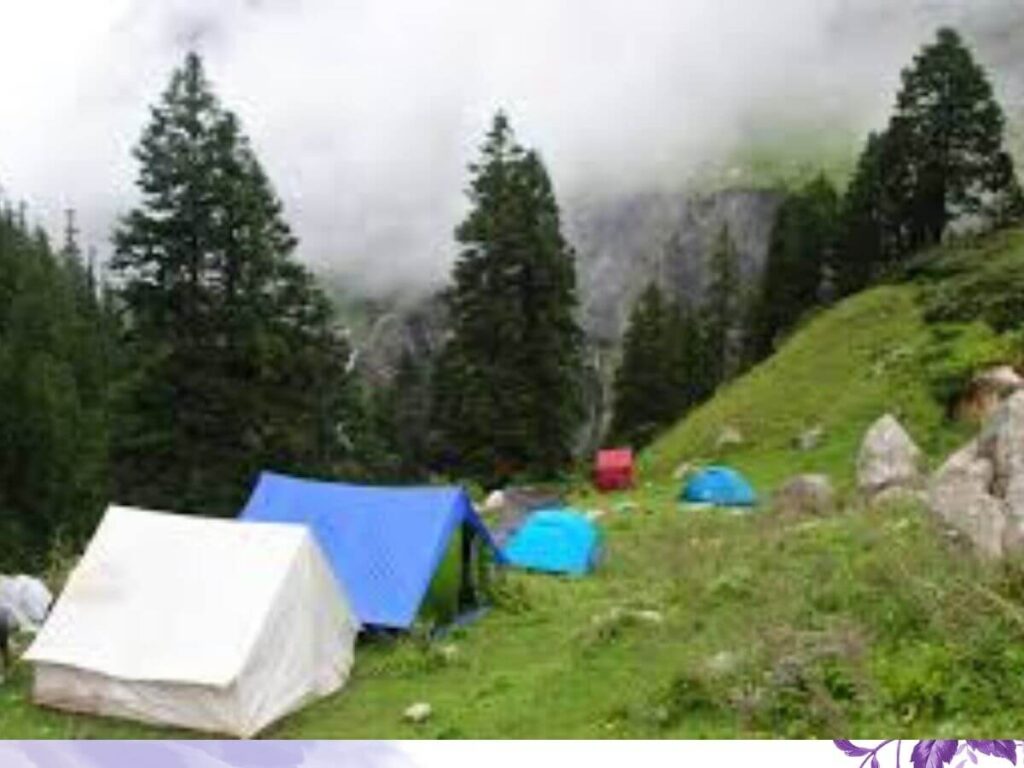
Researching Campsite Locations
Before you even think about packing, you need to choose the right campsite. Start by researching different locations. Look for campsites that are beginner-friendly, meaning they have easy access to amenities and are not too remote. Websites like ReserveAmerica and Hipcamp are great resources to find and book campsites.
Considering Accessibility and Amenities
When you’re new to camping, it’s best to choose a campsite with good accessibility and amenities. Look for sites that offer restrooms, potable water, and convenient parking. Having these facilities nearby will make your first camping experience more comfortable.
Evaluating Safety and Wildlife
Safety should always be a priority. Research the types of wildlife common in the area and understand the precautions needed. Some campsites might have bear-proof lockers or guidelines for storing food to keep animals away. Always follow these guidelines to ensure your safety.
Efficient Packing Tips

Making a Packing List
A packing list is essential to ensure you don’t forget any important items. Start by listing the basics: tent, sleeping bag, cooking supplies, and clothing. Then, add specific items based on the weather and activities you plan to do.
Essential Gear for Beginners
If you’re new to camping, there’s no need to go overboard with gear. Stick to the essentials: a reliable tent, a comfortable sleeping bag, a sleeping pad, a portable stove, and basic cookware. You can always upgrade your gear as you gain more experience.
Space-Saving Packing Techniques
Maximize your packing space by using compression bags for clothing and gear. Roll your clothes instead of folding them, and use every bit of space available. This way, you can fit more into your backpack without it becoming too bulky.
Setting Up Your Tent Like a Pro
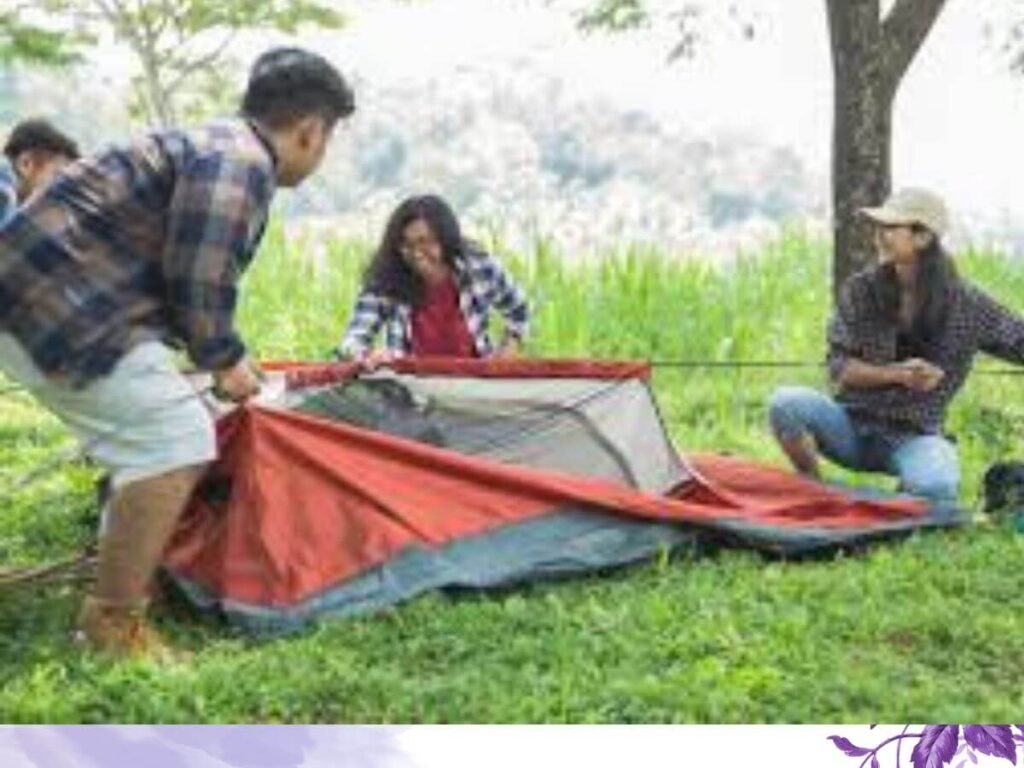
Finding the Best Spot for Your Tent
Choosing the right spot for your tent can make a big difference. Look for a flat, shaded area that is not too close to the campfire but still within sight. Avoid low-lying areas that might collect water if it rains.
Tent Pitching Techniques
Practice pitching your tent at home before your trip. This will save you time and frustration at the campsite. Follow the instructions carefully, and make sure the tent is taut and secure.
Ensuring Tent Stability
Use all the stakes and guylines provided with your tent. They are essential for keeping your tent stable, especially in windy conditions. Double-check that everything is secure before you settle in for the night.
Campfire Cooking Made Easy
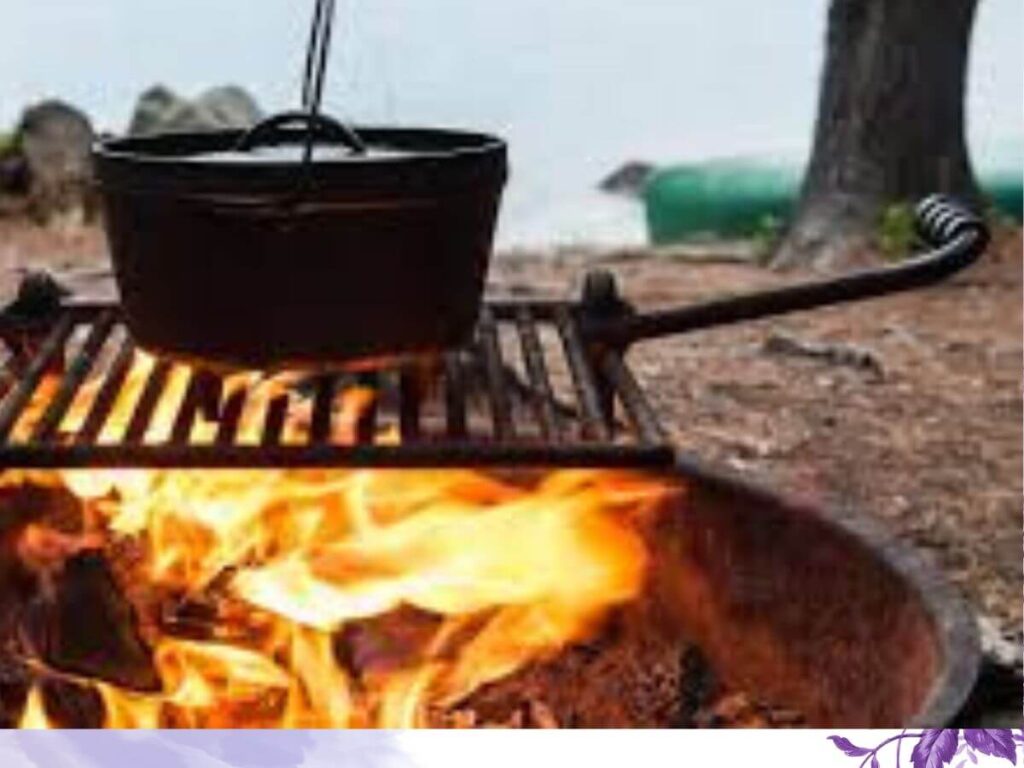
Choosing the Right Cooking Equipment
Invest in a good portable stove and lightweight cookware. Cast iron skillets and pots are great for campfire cooking, but they can be heavy. Opt for lighter materials like aluminum if you’re backpacking.
Simple and Delicious Campfire Recipes
Stick to easy recipes that require minimal ingredients and prep. Foil packet meals, hot dogs, and s’mores are camping classics. You can also pre-cook some meals at home to save time and effort at the campsite.
Safety Tips for Campfire Cooking
Always keep a bucket of water or a fire extinguisher nearby when cooking over an open flame. Never leave the fire unattended, and make sure it’s completely out before going to bed.
Staying Organized at the Campsite

Keeping Your Gear Tidy
Keep your campsite neat by storing your gear in designated areas. Use bins or bags to organize items like cooking supplies, clothing, and tools. This will make it easier to find what you need and keep the campsite clean.
Using Storage Solutions
Hanging organizers and portable shelves can help you maximize space and stay organized. Hang a shoe organizer from a tree to keep small items like toiletries and utensils easily accessible.
Maintaining a Clean Campsite
Always practice Leave No Trace principles. Pack out all trash, food scraps, and any other waste. Keeping your campsite clean not only protects the environment but also prevents attracting unwanted wildlife.
Staying Comfortable While Camping
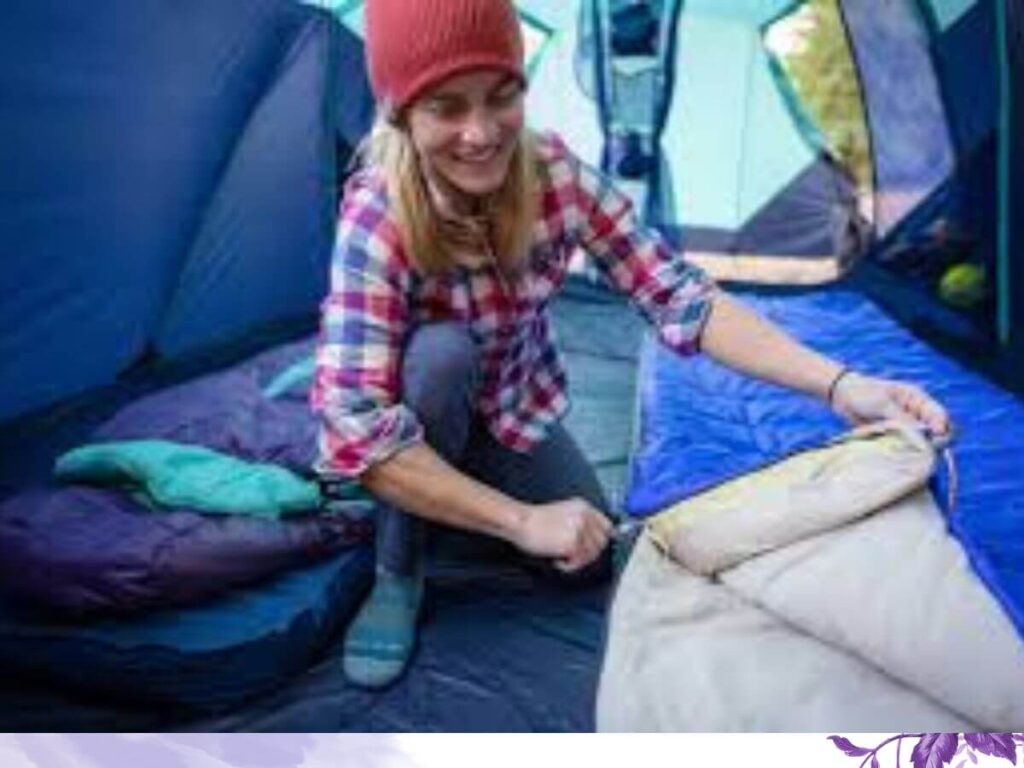
Selecting the Right Sleeping Gear
A good night’s sleep is crucial for an enjoyable camping trip. Invest in a quality sleeping bag rated for the temperatures you expect. A sleeping pad or air mattress can provide extra comfort and insulation from the ground.
Staying Warm and Dry
Even in summer, nights can get chilly. Bring extra layers, such as thermal underwear and a warm hat. If rain is in the forecast, make sure your tent has a rainfly and pack waterproof clothing.
Personal Comfort Items
Bring items that will make your camping experience more enjoyable, such as a comfortable camp chair, a good book, or a portable speaker for music. Little comforts can make a big difference in your overall experience.
Navigating the Outdoors
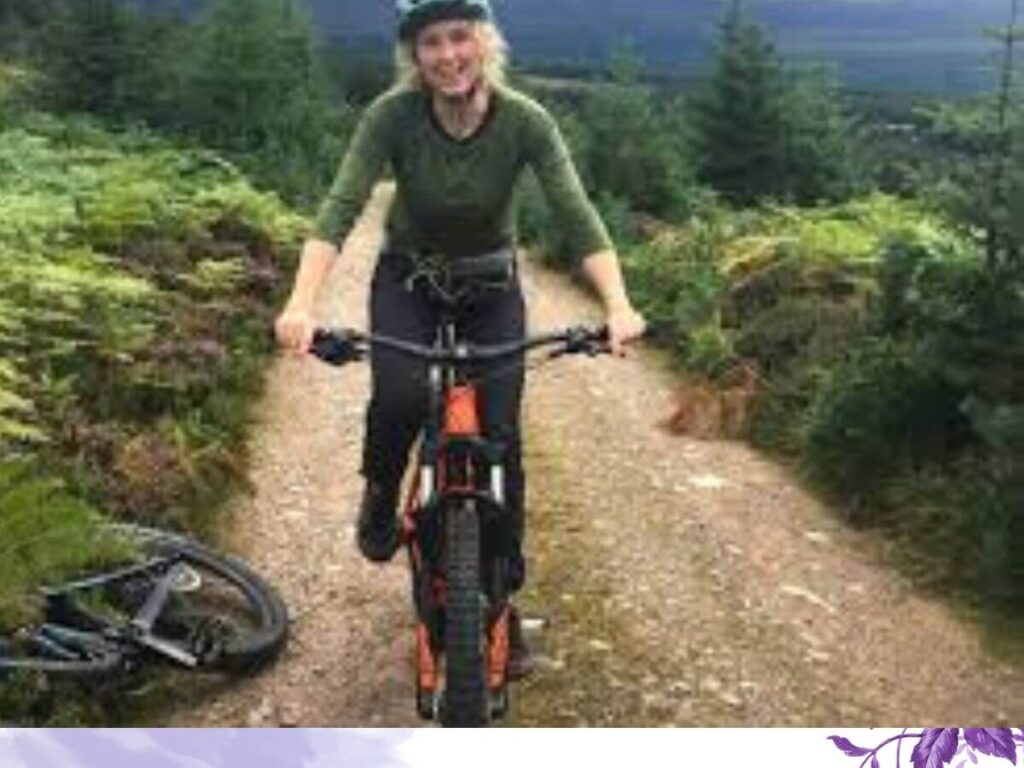
Basic Navigation Tools
Always carry a map and compass, even if you have a GPS device. Batteries can die, and signals can be lost, so it’s important to know how to navigate the old-fashioned way.
Understanding Maps and GPS
Learn to read topographic maps and understand how to use a GPS device before your trip. Knowing how to pinpoint your location and find your way back to camp is essential for staying safe.
Staying Safe on Trails
Stick to marked trails and let someone know your plans before heading out. Bring plenty of water, snacks, and a first aid kit. Be mindful of your surroundings and avoid taking unnecessary risks.
Managing Food and Water Supplies
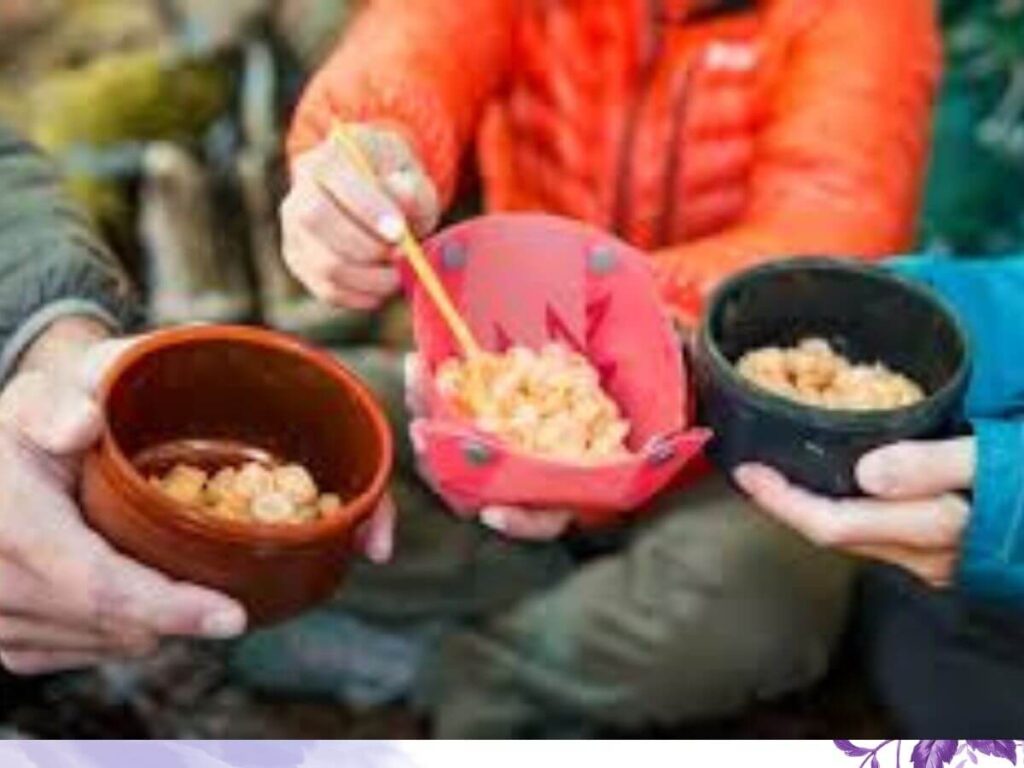
Planning Your Meals
Plan your meals in advance to avoid overpacking or underpacking. Simple, non-perishable foods like pasta, canned goods, and dried fruits are great options. Consider the cooking equipment you have and choose meals that are easy to prepare.
Storing Food Safely
Store food in airtight containers and keep it away from your sleeping area. If you’re in bear country, use bear-proof containers or hang your food from a tree. This helps prevent attracting animals to your campsite.
Finding and Purifying Water
If your campsite doesn’t have potable water, you’ll need to bring your own or find a natural source. Always purify water from lakes or streams by boiling it, using purification tablets, or a portable water filter.
Dealing with Bugs and Wildlife
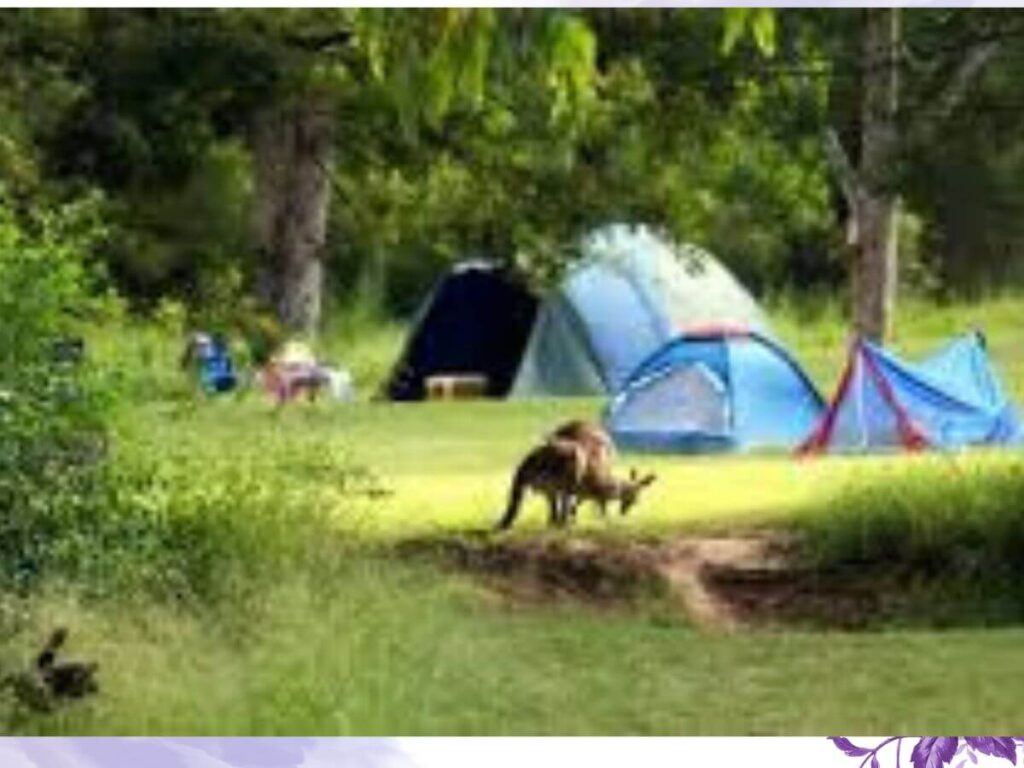
Preventing Bug Bites
Insect repellent is a must for camping. Choose a repellent with DEET or natural alternatives like citronella. Wearing long sleeves and pants can
Safely Encountering Wildlife
Respect wildlife and observe from a distance. Never feed animals, as this can make them dependent on humans and more likely to cause problems. Make noise while hiking to avoid surprising any animals.
Using Natural Repellents
Natural repellents like eucalyptus oil, lavender, and peppermint can help keep bugs at bay. These can be applied to your skin or used in a diffuser to create a bug-free zone around your campsite.
Fun Camping Activities
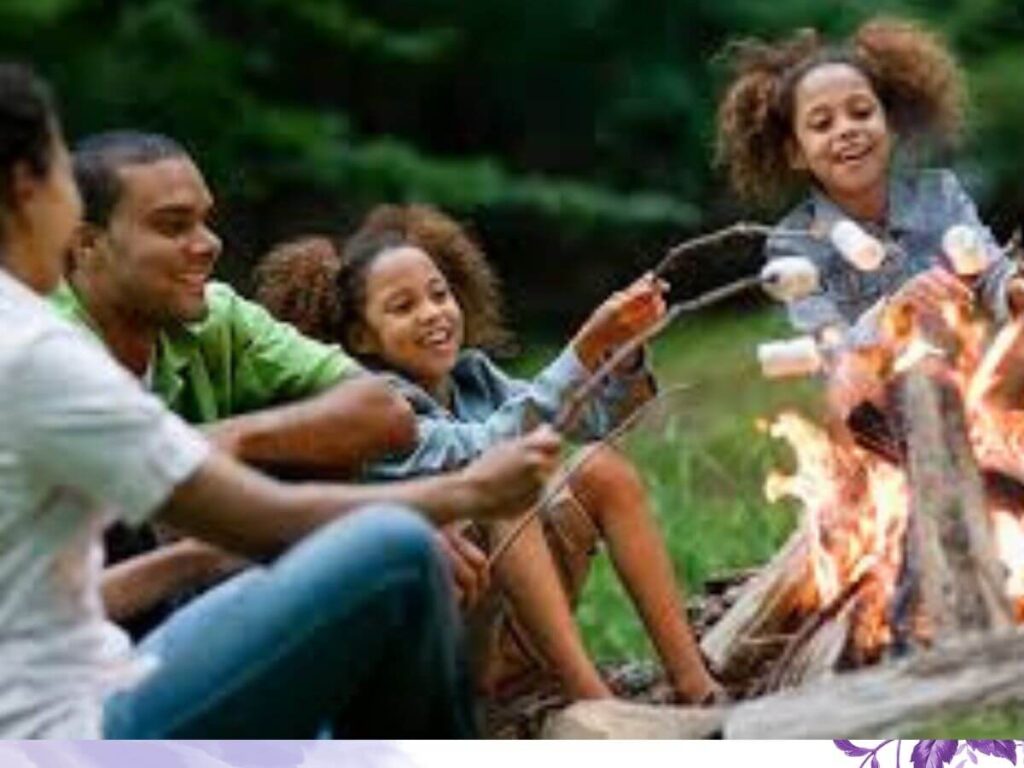
Group Games and Activities
Camping is a great time for bonding. Bring games like frisbee, cards, or a portable cornhole set. Group activities like scavenger hunts or storytelling around the campfire can create lasting memories.
Solo Activities for Relaxation
If you need some alone time, bring a journal, sketchbook, or a good book. Camping offers a perfect opportunity to relax and reflect in the peace of nature.
Exploring Local Attractions
Take advantage of nearby attractions like hiking trails, lakes, or historical sites. Exploring the local area can add an extra layer of adventure to your camping trip.
Conclusion
Camping can be an incredibly rewarding experience, especially when you’re well-prepared. By following these top 10 camping hacks, you’ll be ready to handle your first trip with confidence. Remember, the key to a successful camping trip is preparation and a positive attitude. Get out there, embrace the adventure, and enjoy the great outdoors!


